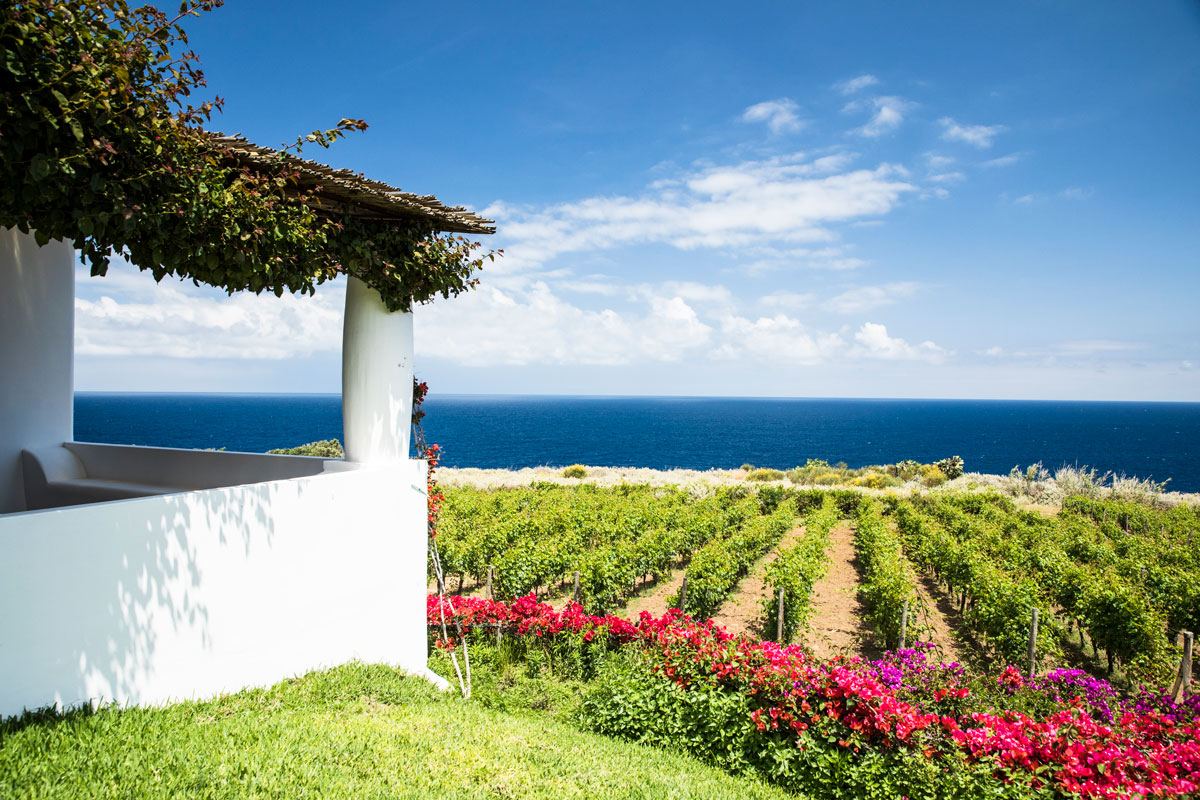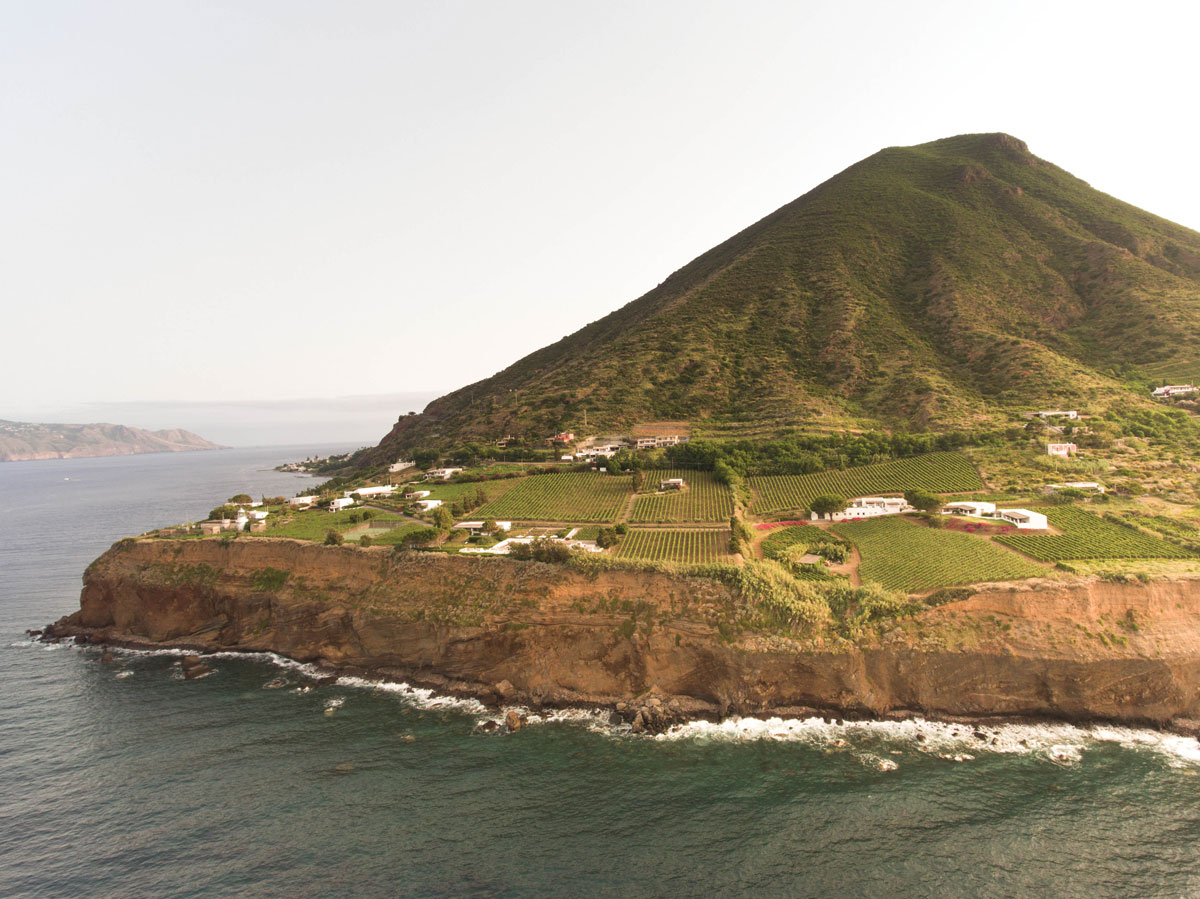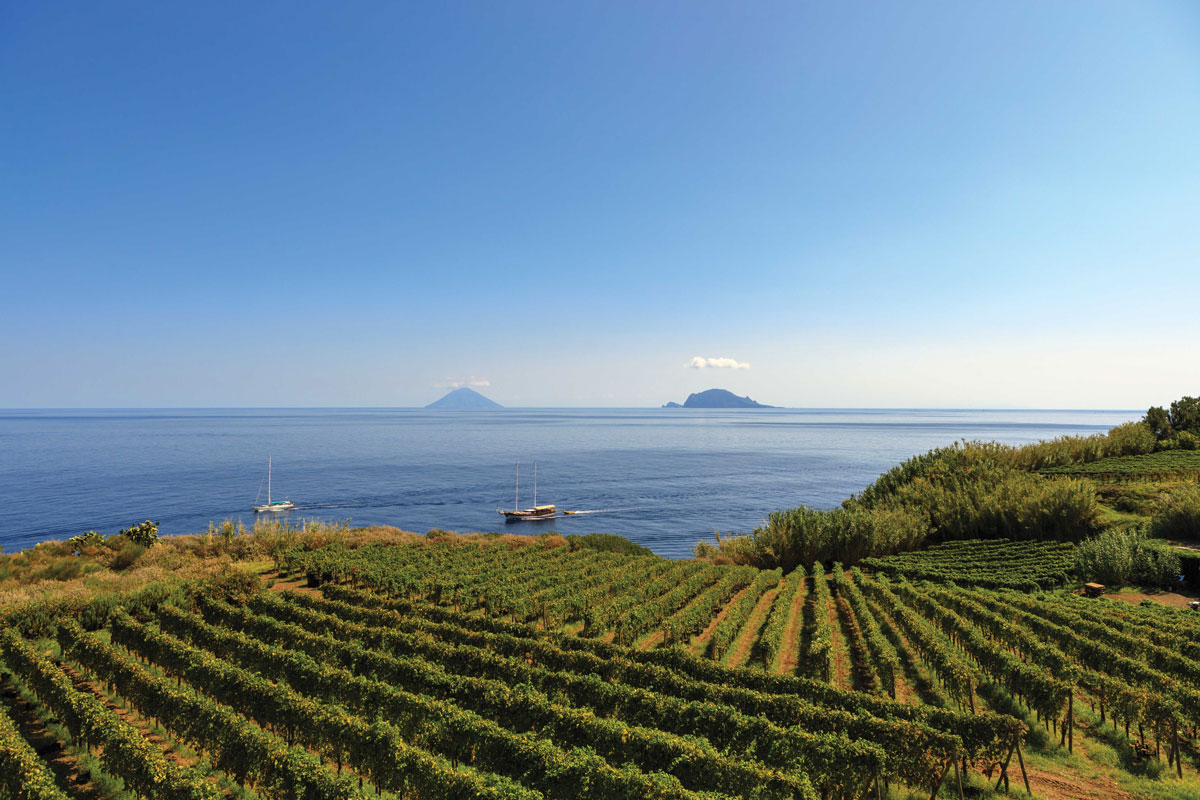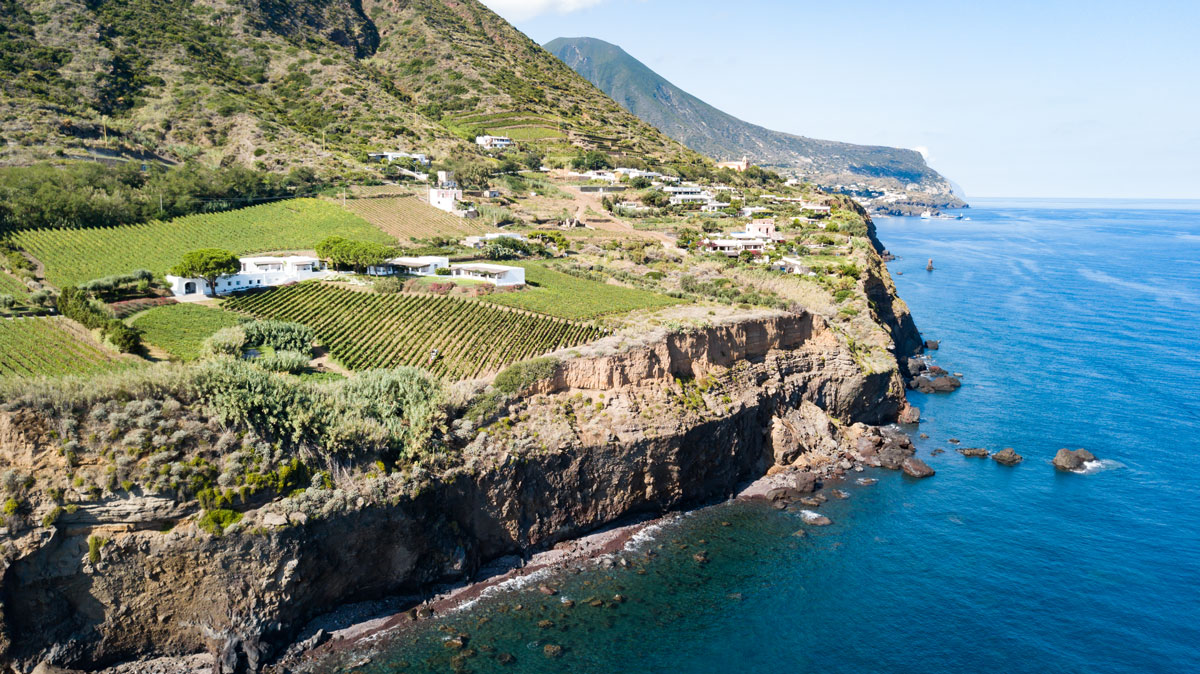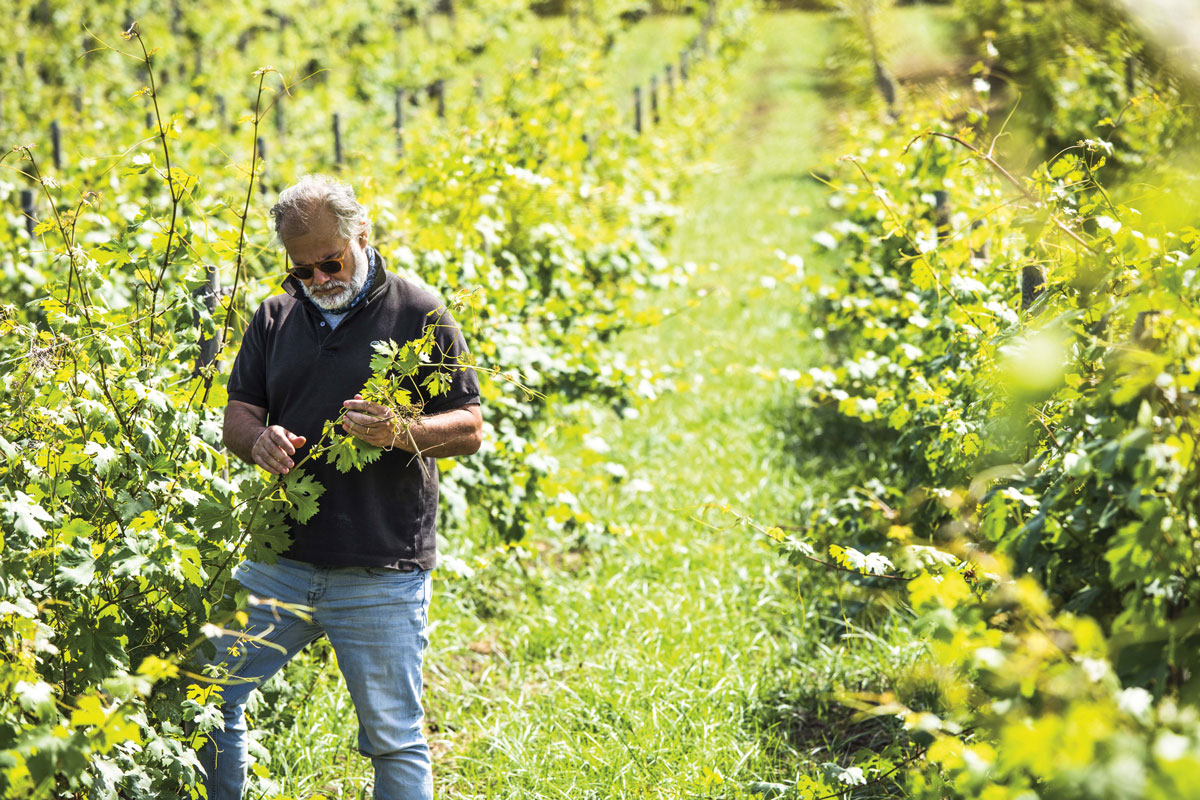ABOUT THE WINERY
Malvasia is one of the grape names that has been applied rather indiscriminately to a number of sort-of-similar but unrelated aromatic grape varieties. Among the gaggle of more than a dozen different Malvasias, one of the most respected examples is known as Malvasia di Lipari, named after a small island off the northeast corner of Sicily. Lipari is the largest of eight isles in this area collectively known as the Lipari Islands or, more often, the Aeolian Islands.
The Aeolian Islands are known for their volcanism—two of the islands, Vulcano and Stromboli, are still active volcanoes—which has earned them a place on the World Heritage list. They are also known for a delicious sweet dessert wine made from the indigenous Malvasia di Lipari, a large portion of which is consumed by the thousands of tourists who come to enjoy the islands’ beautiful beaches and sunshine in the summer.
The most attractive of the Aeolians is the island of Salina (where much of the movie Il Postino was filmed). The noble Tasca d’Almerita family, which has been at the forefront of production and research in Sicily’s wine industry since 1830, acquired 12 acres of vines in Malfa on the northeast point of Salina. The spot is called Capofaro, meaning Lighthouse Cape, and indeed an important lighthouse stands next to the vines, guiding the numerous interisland ferries and other boats around the headland.
At the time of purchase, the vineyards were planted with 30-year-old Malvasia vines, of which Tasca kept the healthy ones and filled in with new plantings. Modern viticultural practices were introduced with a particular goal of better protecting the grapes from sun and wind damage to maintain fresh flavors and aromas. This is demonstrated in one of the two wines made here, Dydime, an atypical Malvasia made with fresh grapes and finished dry. Tenuta Capofaro’s other wine, “Capofaro,” is closer to the traditional sweet dessert wine of the island, taking advantage of new technologies. The grapes are brought indoors intact after harvest and are laid out to dry in order to dehydrate them and concentrate their sugars and flavor components. After a few weeks of drying, they are vinified into a classic sweet island wine. However, Capofaro is not a traditional Malvasia delle Lipari DOC wine, which requires a small addition of a grape called Corinto Nero. Tasca prefers the pure expression of Malvasia and therefore the 100% Malvasia wine is made under the auspices of IGP Salina.
READ MORE







